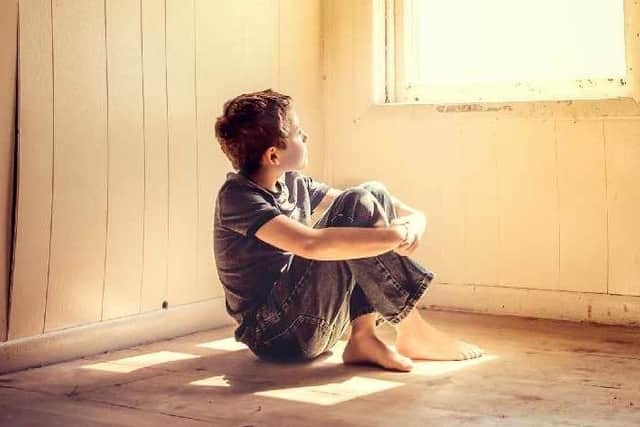New report paints bleak picture of Milton Keynes as a city divided by wealth and poverty
and live on Freeview channel 276
A new ‘Vital Signs’ report has exposed the ‘tale of two cities’ behind MK’s rich and poor populations.
The report, prepared by the MK Community Foundation, compares the city now to how it was a decade ago, in 2013.
Advertisement
Advertisement
It shows poverty has increased, education is “under delivering”, crime is rising, and affordable housing is getting more scarce.


Over the past 10 years there has been growth in well-paid, higher skilled jobs in high tech and digital industries, causing MK to boom for many businesses and employees.
But there has also been a growth of “insecure and low paid work”, which causes thousands of people to live with financial hardship, coping with food and fuel poverty.
Over 18,000 children in MK – 29.8% of all children in the city – are now living in poverty.
Advertisement
Advertisement
An estimated two per cent of MK households use the Foodbank Service to survive and 12% of neighbourhoods and estates in MK fall into the 20% most deprived neighbourhoods in the whole of England.
The gap between income levels and prices of homes, together with the lack of affordable housing, is one of the underlying causes of poverty and homelessness, state the report.
The number of households living in temporary accommodation secured by the council’s homeless department is now eight per 1,000, equating to hundreds of families. This is more than double the rate for England, which is 3.98 per 1,000 households.
A staggering 2,342 people are currently on MK Council’s waiting list for a home and many could wait for years.
Advertisement
Advertisement
Violent crime is often a symptom of complex issues around homelessness, disadvantage and exclusion and this has risen significantly in MK since 2013. The crime severity score in MK has almost doubled from 8.2 to 14.8, while young people’s distrust in the police has more than doubled from 20% to 45%.
Meanwhile, education is under-delivering in enabling individuals from poorer backgrounds get good jobs, states the report.
It adds: “Although, on many measures MK has a strong economy, many employees are trapped in low paid and insecure jobs. Women and those from Ethnically Diverse backgrounds are less likely to be in the new, well-paid digital jobs.
“The issue of insecure jobs is seen by many of the charitable organisations as having a particularly detrimental impact on livelihoods in MK.”
Advertisement
Advertisement
Local vicar Paul Oxley from St Mark’s Church is a founding member of MK Child Poverty Partnership. He writes in the report: “The gig economy and the low skilled labour opportunities of Milton Keynes are something that has enabled us to flourish within the past ten years, but there is a downside to that – the two-speed nature of the city is becoming increasingly marked.
"Lack of work, uncertainty about income or stability of income, limited sickness pay, inflexible employers around childcare – these all add to mental stress as well as a lack of basic income.”
Each sad statistic is accompanied by a sad face in the report. However, there are some smiley faces. The reasons for these include the rising number of MK pupils from ethnically diverse backgrounds (52%), the millions spent on arts and culture in the city and the rising number of students going to university.